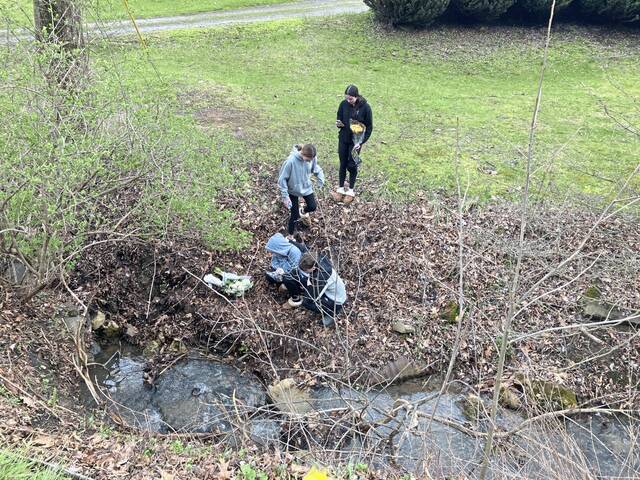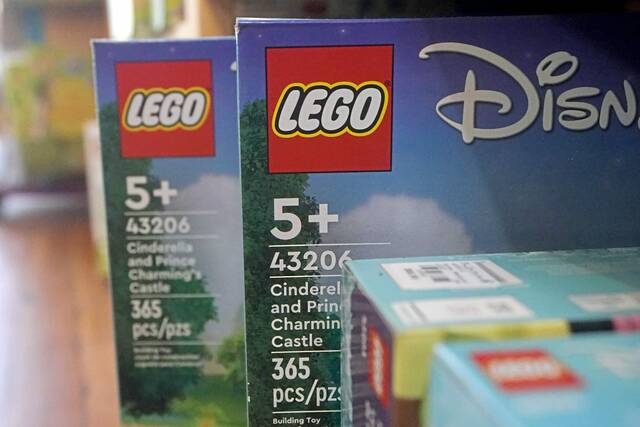Franklin Regional school board members decided not to move forward with a grant-funded, multi-year survey of students, staff and parents aimed at improving communication among all parties.
The board voted 4-3 to reject a proposal that would make use of a “school climate survey” with questions developed by Boston-based Panorama Education. The first round of surveys would have gone to Franklin Regional staff and district parents and guardians. Students would not take part in surveys until the program’s second year.
“The surveys would all be anonymous and voluntary, and would include questions about issues that could present obstacles for family engagement with the district,” said Assistant Superintendent Jennifer Baginski. “Parents are asked how connected they feel, how often they communicate with teachers, what obstacles exist as far as that engagement, and generally it would give us a better sense of how to improve our family engagement.”
Board members Deb Bucciero, Traci Eshelman Ramey, John Fallat and Deb Wohlin disagreed, voting against approval of the surveys at their Oct. 21 meeting. Board members Mark Kozlosky and Josh Zebrak were not present.
“We’ve had conversations before about surveys,” Bucciero said. “I know we have the ability to pick and choose the survey questions and it’s anonymous and all that. But I think when you get into surveys, you’re getting into intrusive information about families’ private lives.”
Bucciero referenced a 2021 story from the website Real Clear Education, centered on a Portland, Ore., school district that published results of a survey conducted through Panorama.
“They start out asking normal questions but then they get into questions about gender, sexual identity and even suicide,” Bucciero said. “We’re supposed to be teaching kids the three R’s (‘reading, writing, ‘rithmetic’).”
Many of the survey questions in the Oregon district’s report, however, are nowhere to be found in Panorama’s current survey guide or in the list of questions educators can choose from in preparing a survey for their own students. The Oregon school’s published report also does not include any questions about suicide.
None of Panorama’s current list of proposed questions makes any reference to sexual identity or suicide, and the only question which mentions race is in a section of background questions designed to understand the basic demographics of survey participants.
Both Baginski and information on Panorama’s website said student data from the anonymous surveys will not be sold or disclosed for targeted advertising.
Franklin Regional administrators held a public Zoom meeting this fall to introduce the survey program to interested parents and developed a list of questions about the program which Baginski addressed at the board’s most recent meeting.
“Some of the questions included what the survey would look like for students, which is why we felt it was important to develop those questions separately and bring them back at a May (2025) meeting for approval to use (next) fall,” Baginski said.
The first round of surveys also would have included school district staff, to gather anonymous data about the effectiveness of professional development programs and whether teachers feel supported by the administration.
Board member Scott Weinman, who voted in favor of the surveys, made a case for their use.
“These are giving us a sense of how parents and teachers view the district and how helpful they feel we are,” he said. “Panorama doesn’t share data with any third parties, and school districts choose the topics based on what they feel works best in their communities.”
Bucciero disagreed.
“I’m not saying our school is doing anything wrong,” she said. “I think we just have to be careful what we say yes to. The district wants to do what’s right to help kids, and there are kids having problems in school who need help with social or mental health issues. But I think that’s what parents are for.”
Weinman, along with board members Vince Azzolina and Kevin Kurimsky, voted in favor of the surveys, which would have cost about $18,000 the first year, and $16,000 in two subsequent years.
“I just don’t think broad surveys are effective,” said board member John Fallat. “I’d be more inclined toward an internal targeted survey that the school creates, rather than one produced by a third party. I think the school does a good job providing a lot of support for teachers and students, and I always err on the side of data privacy.”








